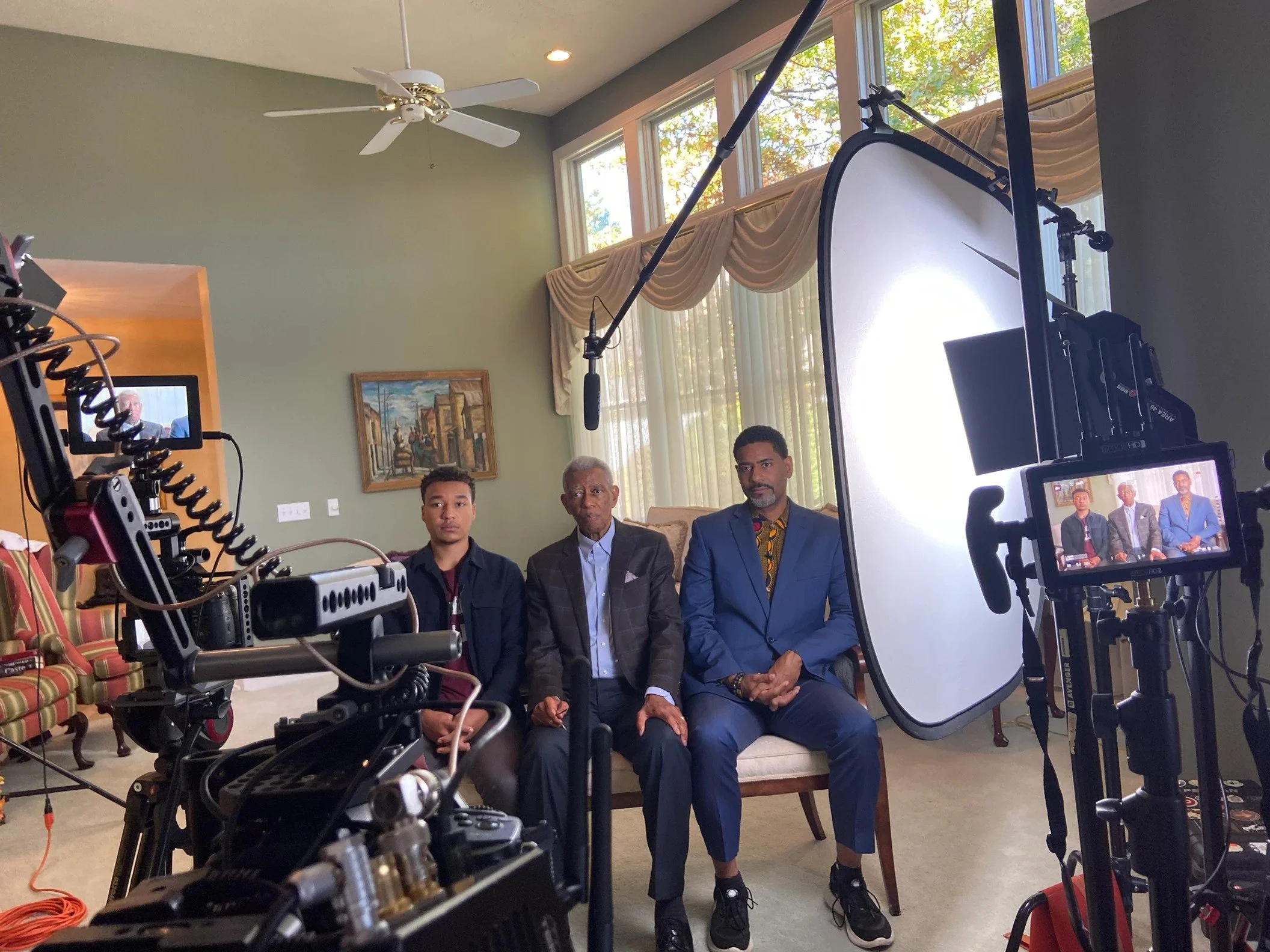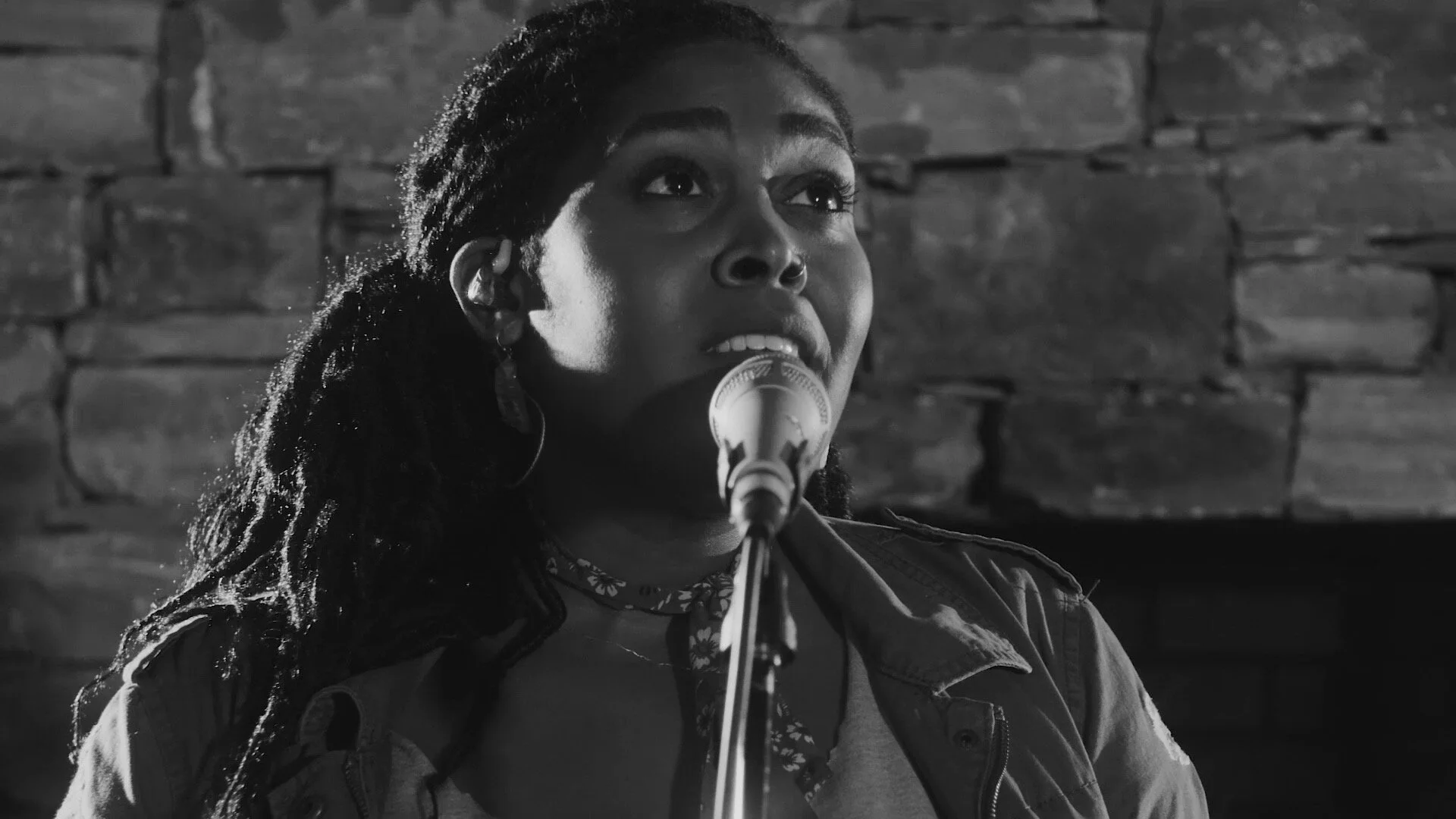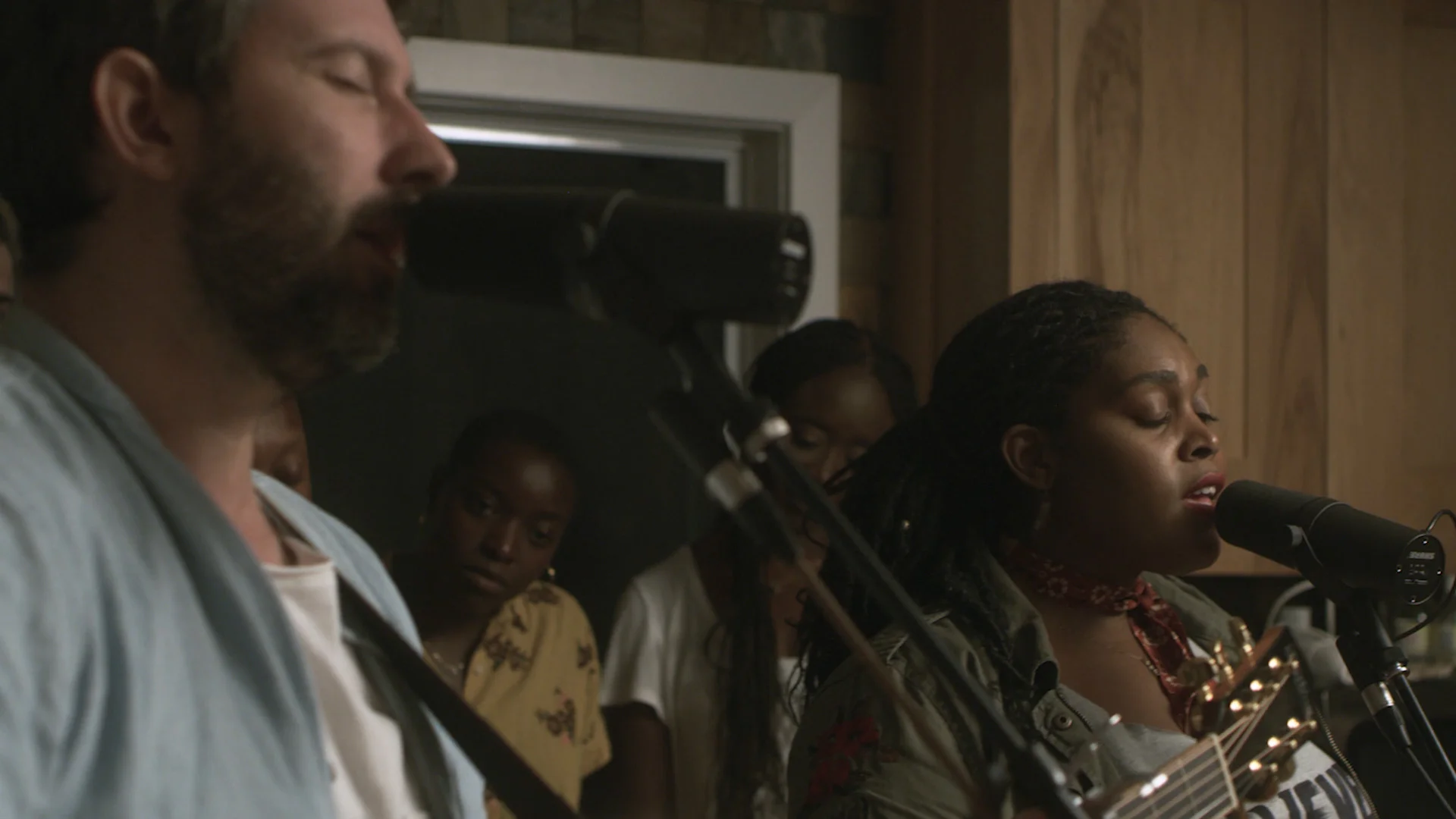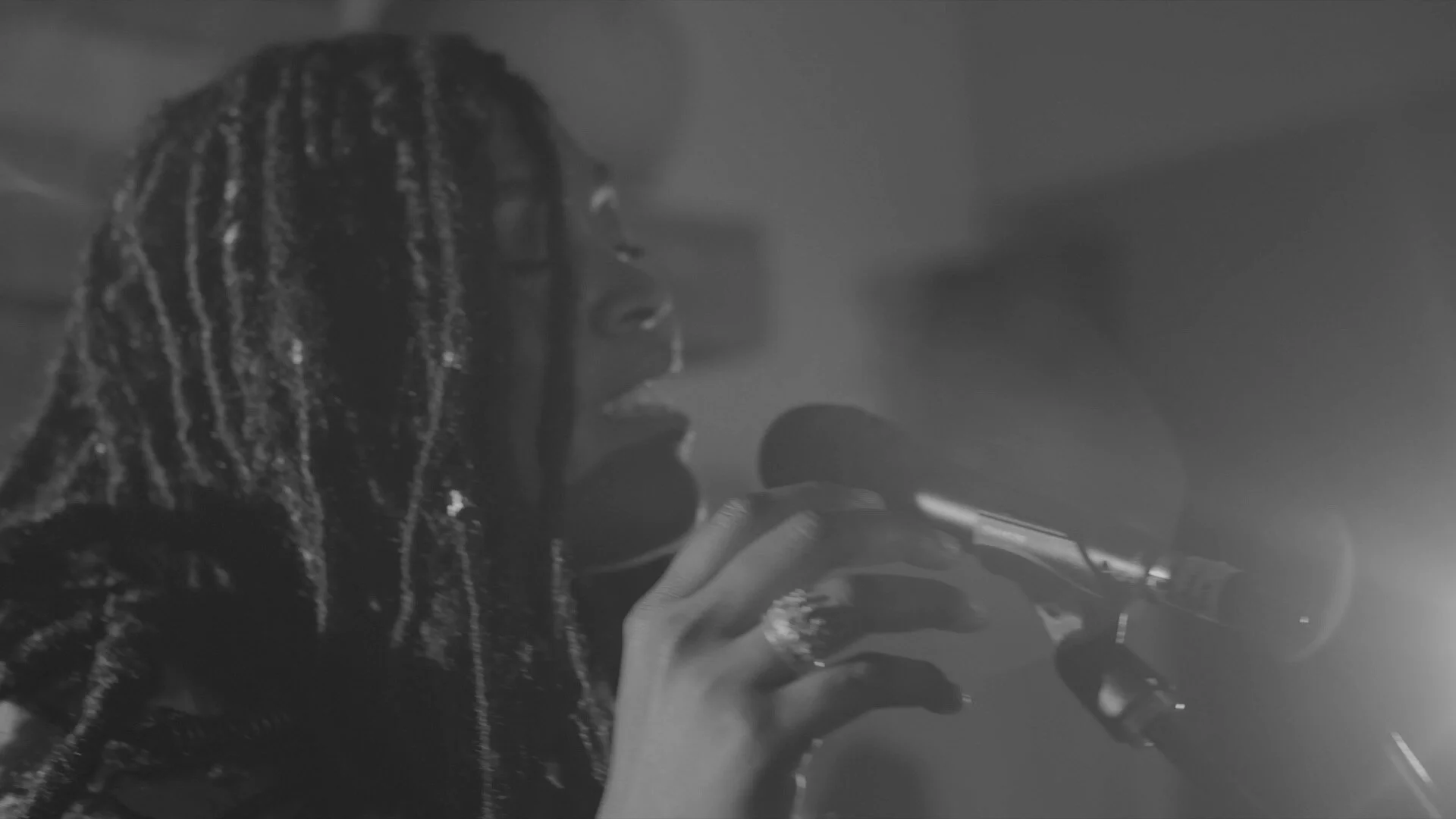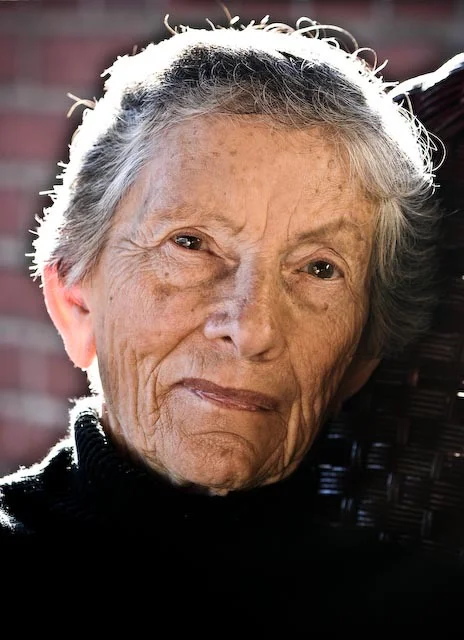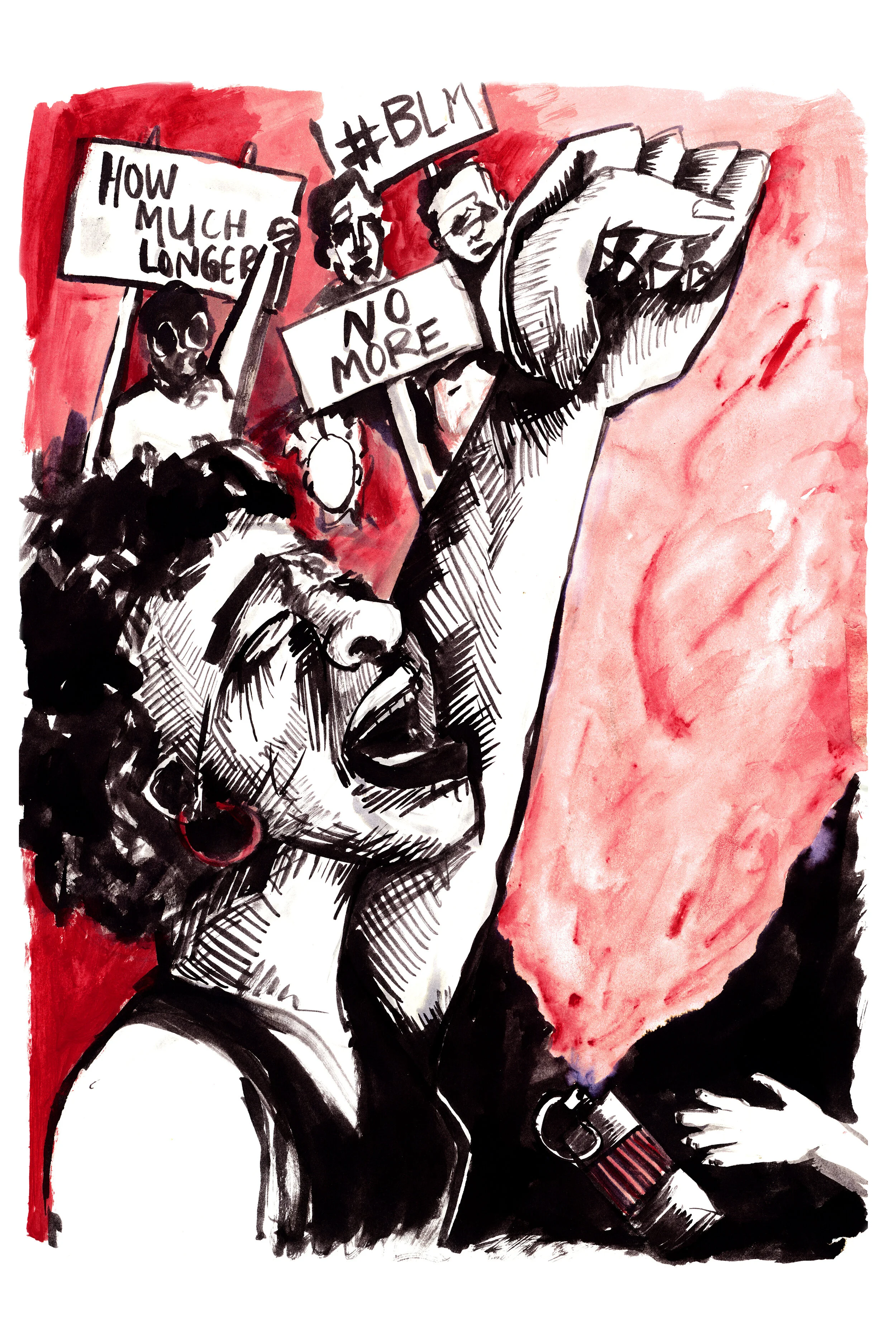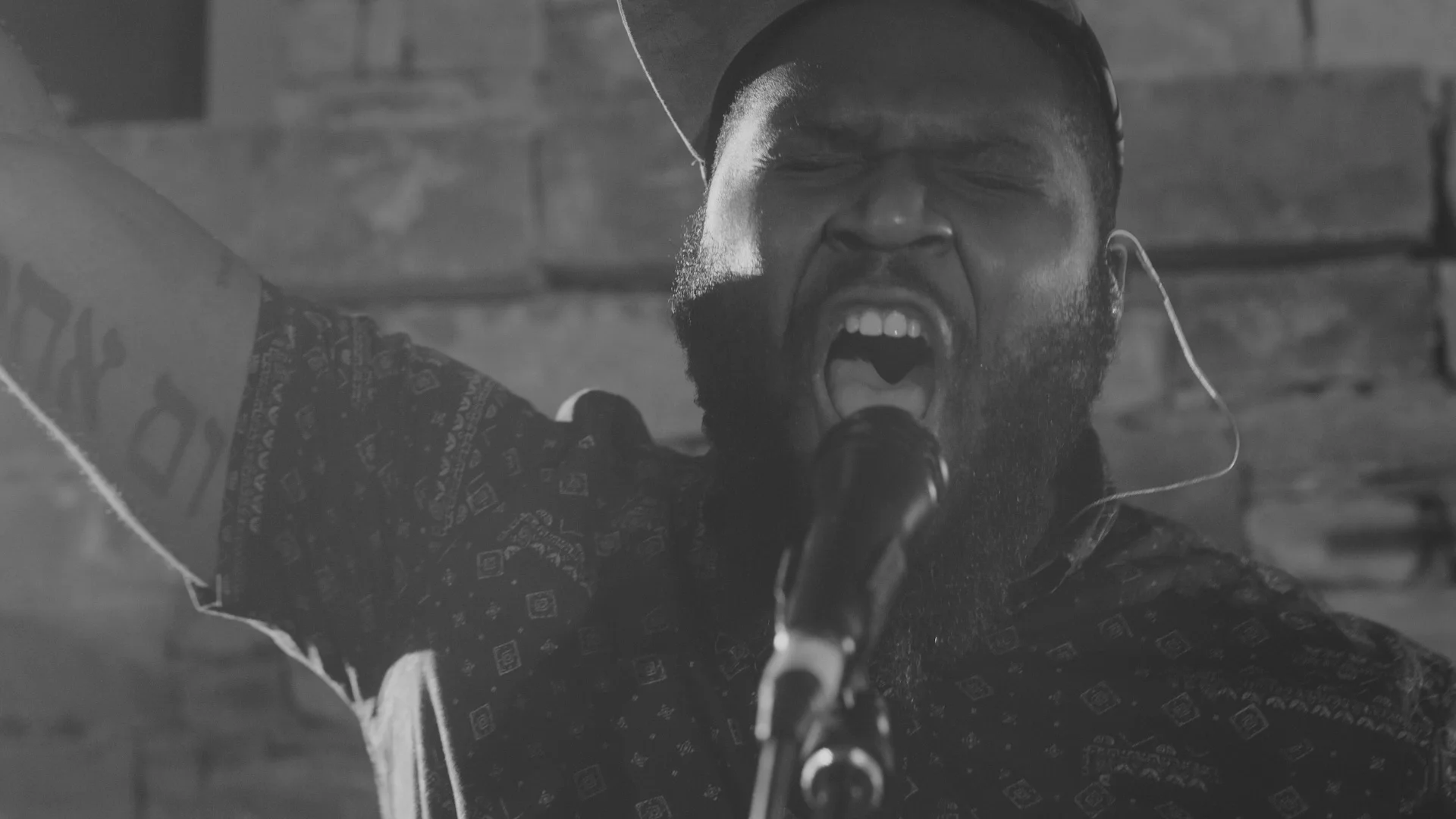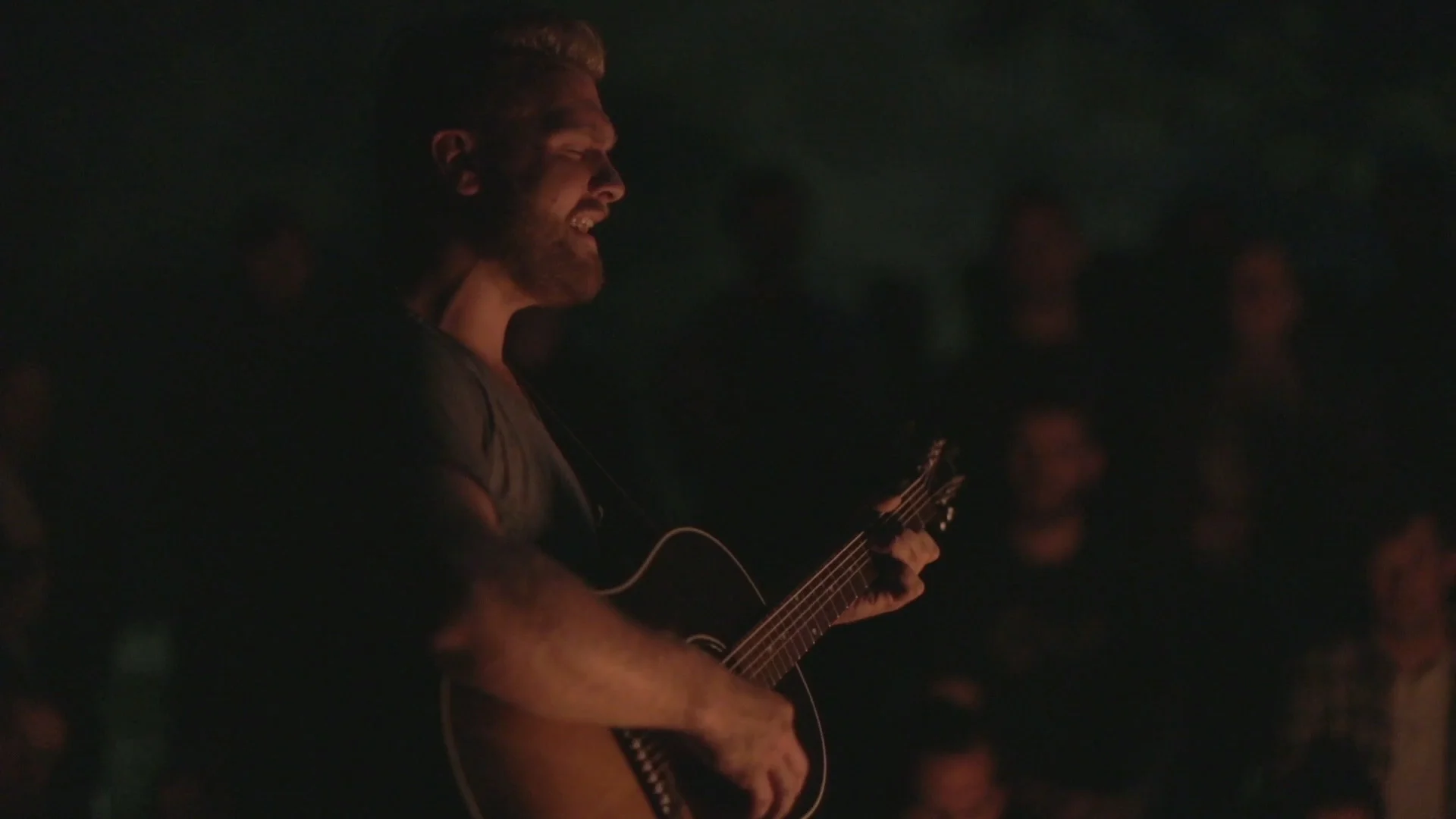God Is Not Abusive
God Is Not Abusive
”It almost sounds too simple to say aloud — “God is not abusive.” Because no one ever should be. But the reality is that we live in a world where experiencing some form of abuse feels as likely to happen as getting a new job, changing up your hairstyle or taking a trip to some far away city.” (Brittney Spencer)
GOD IS NOT ABUSIVE
Written by Brittney Spencer (BMI), Benjamin Hardesty (BMI), Isaac Gill (ASCAP), Latifah Alattas (SESAC)
© 2018 Common Hymnal Digital (BMI), BSpencer Publishing (BMI), Benjo Darro Music Company (BMI), Common Hymnal Publishing (ASCAP), Isaac Gill Music (ASCAP), Common Hymnal Online (SESAC), Moda Spira Publishing (SESAC) (admin by IntegratedRights.com, for license requests please email LicensingUSA@integritymusic.com). CCLI 7130009.
VERSE 1
G#m B/D# E
God is not abusive
G#m F#/A# B B/D# E F#
Takes no pleasure in our shame
E G#m B/D# F# C#m D#m E
He finds a place inside our pain
G#m F#/B B B D# E
Hallelujah
CHORUS
G#m D# E
Come now everybody
G#m D# E
Lay down every stone
G#m D# E
He will not condemn you
C#m B/D# E
There’s freedom at his throne
VERSE 2
G#m B/D# E
When hurt grows me to silence
G#m F#/A# B B/D# E F#
Bearing guilt from other’s sins
B F#/A# G#m C# B/D# E
Lord, lift my voice to cry out
G#m F#/A# B B/D# E
Spirit catch the tears that fall
VERSE 3
Jesus sees my trauma
Holds my broken pieces
And draws me to his kindness
Hallelujah
BRIDGE
C#m
So come
E
Do not be afraid
G# F#
These burdens no longer needs to keep you silent
C#m
Oh come
E
Do not be afraid
G#
There’s refuge from all
F#
The hurts and pains that haunt you
More Songs Written By Brittney Spencer
More Songs Written By Ben Hardesty
I can only name a handful of people I know — women particularly — who haven’t experienced some form of sexual abuse. And many don’t report or ever discuss it. When Isaac, Ben and I sat down in my kitchen with the intention of writing a song centered around the MeToo movement, I remember thinking I could get through the session without ever having to mention or even allude to my own abuse. I honestly believed I could take part in writing this song without having to draw from my own experience. The first verse came relatively natural for us to write. It’s a general statement speaking to the nature of God. It wasn’t until we got to the second verse and I watched Isaac and Ben labor over trying to imagine how they’d feel had they discovered their mom’s or sisters had been abused that I felt even the slightest bit awkward not having drawn from my experience. Watching them try to put themselves in someone else’s shoes was one of the most touching things I’d seen in a long while. It made me want to get in touch with my own feelings and try to formulate real words I felt had been swirling around in the dark corner of my psyche for ages, only coming up for air once triggered into memory every now and then.
We live in a culture where people typically respond poorly when someone steps forward and says, “I was sexually assaulted/abused.” From political pundits itching for ratings, to your middle-aged next door neighbor who’s stuck in a Facebook algorithm; the millennial who responds harshly in the Twitter and Instagram comment sections of vulnerable posts detailing trauma and a cry for justice; the president of the United States. Whether it’s a parent who doesn’t know how to handle hearing their child come forward with their abuse because they’ve never truly dealt with their own, or the small town secretary who can’t fathom why a successful doctor waited years—decades even— before coming forward to tell her story in the court of law, we as a society don’t handle the tragic realities of sexual abuse well. This truth speaks to why so many victims don’t want to come forward. It’s why I never wanted to come forward. It’s why I don’t think I ever wanted this song to go as far as it has. I thought it would forever be tucked away in my little kitchen and cherished as a heartfelt moment shared by me and my brave and empathetic friends.
That night, we wrote every part of the song except the bridge. Months later, when Common Hymnal decided to make a record, “God Is Not Abusive” was chosen to be on it. After talking with Malcolm, the leader of all the brilliant madness that is Common Hymnal, we felt the second verse needed a little attention. Originally, the opening line for the second verse was, “I am just a woman, bearing weight from one man’s sin.” I knew I was too attached to the song and that changing any lyric would ultimately feel like I was changing my story. So, we concluded that we needed some outside help. I then reached out to Latifah Allatas to join our writing team. She not only helped make the second verse more inclusive of men and women, but she wrote a bridge as well.
Maybe this song won’t heal anyone from anything or help anyone do much except be forced to remember the trauma they’ve been desperately trying to escape. But maybe it’ll join a conversation that’s been going on in the shadows of victims minds and hearts for as long as they can remember. Maybe “God is not abusive” will grow to feel like more than a nice phrase or an easily digestible thought. Maybe, for those who hear it, it’ll be a simple goal that guides the way we engage with humanity and ourselves. A song can only dream.
On a cold night in January, Ben Hardesty was visiting Nashville. Britt Spencer and I often get together to write. But we knew that adding Ben to the mix was going to be - at the least - very fun!
It was already later in the evening, and the three of us were joking around, catching up on life, and sharing a bottle of wine. At some point the conversation took a sudden and contemplative turn as we began to talk about the MeToo movement. Then there was some light guitar picking. It got real.
“God is Not Abusive” was born out of dialogue, friendship, empathy, and real life experience.
This song is deeply important to me for many reasons, but one reason in particular had an influence on my perspective while writing with Brittney and Ben on that winter evening.
From 2009-2011 I travelled with a team of people, working together to produce a documentary film about the issue of sex trafficking in the United States. Everything I experienced during that time wrecked and changed my life. I could never unlearn the reality of horrific abuse and trauma happening right before our nation’s eyes.
A consistent theme that we encountered during the interviews for that documentary was the hopefulness of God’s nearness and healing in the midst of great suffering. Here were many women who had been tortured and abused, standing stronger than I ever could, testifying with much more faith and forgiveness than I could ever hope to possess.
While writing with Brit and Ben, I thought on my travels and the stories from meeting those survivors of trauma. I was reminded of the Jesus who sits with the woman who is about to be stoned to death by religious leaders. Accused of “adultery,” she may in fact be the victim. Jesus was beside her, shutting down the accusations against her, setting her free.
In Christian culture, we say “God is good” like a platitude, but for many of us we can’t comprehend what this actually means. Somewhere in the psyche we have some skewed understanding of love that has been marred by pain and abuse. We need a reset.
We grasp at ideologies and theologies searching for God’s “goodness”. And it’s hard. Sometimes we simply need to start with what God is not.
“God is Not Abusive” represents a starting point for anyone who has experienced trauma. The song is just a tiny seed of understanding about what God is not, giving space for the Christ who has been present beside us all along, sharing in our hurt.
Special thanks to Latifah Alattas for helping us tie it all together! And a big thank you to Orlando Palmer for his beautiful arrangement.
God is not abusive. This is a necessary and crucial truth for all people to latch on to. While this song is a song directly related to victims of sexual abuse, I believe it has the power and language to apply to a multitude of pains and situations.
One of my hopes for this song is that it would shine a light on the goodness of God, and that people would come to know that He is and always has been love. That can be hard to do because when people are hurt by others who are or claim to be followers of Christ, they often associate that treatment with the character of God. For example, if a father abuses his child, it is likely that the child will naturally associate the word ‘father’ with abuse. I believe that the thought process of people who feel this way is completely valid as is their pain, but also that the truth is this: things we do that hurt people are not a reflection of Christ’s love, but rather a distortion of who he is that fogs our vision of the true character of God. Earthly fathers may be abusive, our Heavenly Father never is. Earthly men may assault and harass, Jesus vehemently opposes this and is there to listen and heal. Pastors, priests, church leaders, business owners and so on may be full of greed and power hungry, but Jesus is humble and his spirit is one that gives, not steals.
Every action of humankind that goes against the will and kingdom mindset of God is a distraction and misrepresentation of the true image of God. That is why I am so grateful that his mercies are new every morning. If everybody believed Christians and our actions were God’s actions, we would truly be in a hopeless place. But there is hope; hope in the truth that God is not represented by our shortcomings. He is good, He is loving, He is gentle, and patient, and caring, and His nature is completely void of any hint of abusiveness. I find great comfort in that, and hope that through this song others will as well.



